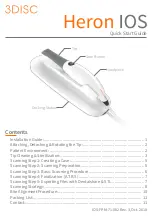
A
Reserpine
144
LTQ XL Getting Started
Thermo Electron Corporation
Reserpine
Use the following directions to prepare a stock solution of reserpine. Use
serial dilutions of this stock solution to make a sample solution.
Stock Solution: Reserpine
Prepare a stock solution of 1
μ
g/
μ
L
reserpine in 1% acetic
acid-methanol
1. Obtain the 1 gram vial of reserpine in your accessory kit. (The average
molecular weight of reserpine is 608.7 u). Weigh out 10 mg of reserpine
and transfer the sample to a 10 mL volumetric flask.
2. Dilute the reserpine up to the 10 mL mark with a solvent of 1% acetic
acid in methanol.
3. Ensure that the sample is thoroughly dissolved in solution.
4. Transfer the solution to a clean and dry light resistant vial. Label this vial
as
Reserpine Stock Solution (1 mg/mL=1.64nmol/mL)
. It is best to use the
Reserpine Stock solution as soon as it is made. If it is necessary to store
the solution, keep it in a refrigerator until it is needed.
Reserpine Tuning Solution
and Reserpine APCI
Sample Solution
Prepare 1 mL of either the Reserpine Tuning Solution of 10 pg/
μ
L
(16.4 fmol/
μ
L,
) or the Reserpine APCI Sample Solution of
250 fg/
μ
L (411 amol/
μ
) in 1% acetic acid-50:50 methanol:water.
Prepare the appropriate Reserpine Solution
1. Pipet 100
μ
L of the Stock Solution (1
μ
g/
μ
L) of reserpine into a clean
polypropylene microcentrifuge tube.
2. Add 900
μ
L of 1% acetic acid in 50:50 methanol:water to the tube.
3. Mix this solution (100 ng/
μ
L=164 pmol/
μ
L) thoroughly.
4. Transfer 10
μ
L of the 100 ng/
μ
L solution into a clean polypropylene
tube.
5. Add 990
μ
L of 1% acetic acid in 50:50 methanol:water to the tube.
6. Mix this solution (1 ng/
μ
L=1.64pmol/
μ
L) thoroughly.
7. Transfer 10
μ
L of the 1 ng/
μ
L solution into a clean polypropylene tube.
8. Add 990
μ
L of 1% acetic acid in 50:50 methanol:water to the tube.
















































